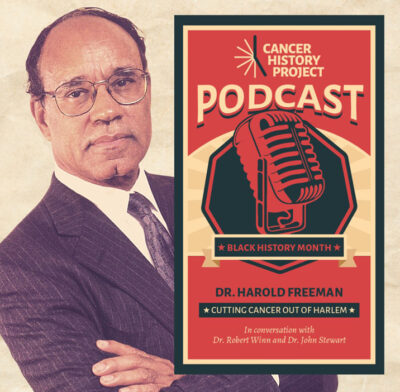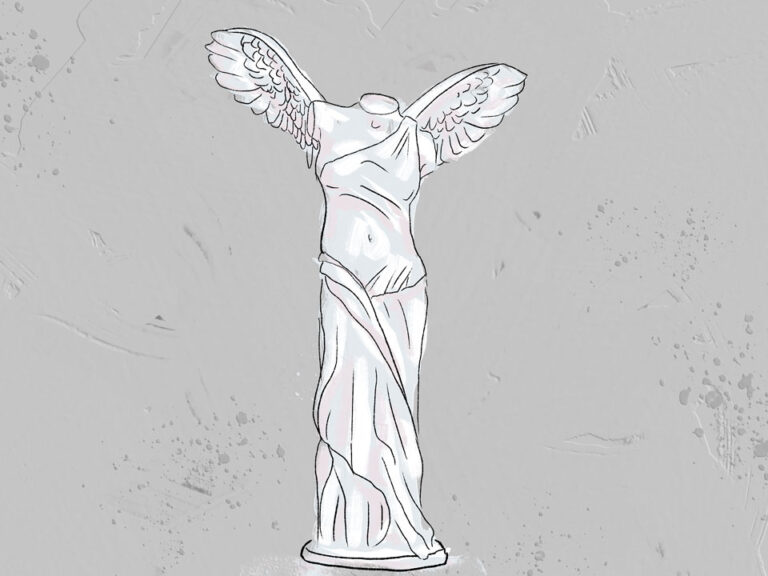Nearly three years ago, Robert A. Winn and Otis Brawley provided their unforgettable personal perspectives on the murder of George Floyd by Minneapolis police.
Both recounted harrowing instances where structural bias in policing nearly cost them their lives.
Winn is director and Lipman Chair in Oncology at VCU Massey Cancer Center and senior associate dean for cancer innovation, professor of pulmonary disease and critical care medicine at VCU School of Medicine, and guest editor of The Cancer Letter for the duration of Black History Month. Brawley is the Bloomberg Distinguished Professor of Oncology and Epidemiology at Johns Hopkins University, and co-editor of the Cancer History Project.
This week, after the murder of Tyre Nichols by police in Memphis, Winn and Brawley engaged in a conversation about how systemic racism is present in law enforcement and health care. The story appears here.
As we see evidence of another killing by police, it’s important to revisit the editorials Winn and Brawley penned in 2020.


- I could have been George Floyd—many times
By Robert A. Winn | June 5, 2020
I am almost certain that no other director of an NCI-designated cancer center can claim the distinction of having had a gun pulled on them by police.
I‘ve had that experience not once, but twice.
I struggled a great deal in deciding whether to put something together this week in response to the senseless killing of Mr. George Floyd. His untimely death has stirred up a number of complex issues, which I thought I had wrestled under control.
If there is anything we’ve learned from the COVID-19 crisis, it’s that the boundaries between cancer and non-cancer can be porous. And health disparities come in bunches, bouquets of injustice. And, as a pulmonologist, I hear Floyd’s last words—“I can’t breathe.” Don’t tell me that chokeholds, literal and figurative, are anything other than a public health issue.


- I could have been George Floyd, too
By Otis W. Brawley | June 5, 2020
The past ten days have seen an outpouring of emotions as American society, devastated by the tragic murder of George Floyd by four Minneapolis police officers, plunges into a crisis of conscience.
Floyd’s death may be a pivotal point in America, similar to the televised beating of peaceful civil rights marchers by police on the Edmund Pettus Bridge in 1965. It has led to a number of protests and, unfortunately, some violence, including an attack by federal law enforcement as they beat and pepper-sprayed peaceful protesters in front of the White House.
The use of force against demonstrators in front of the White House is particularly ironic, considering that this entire series of events stems from an act of police brutality.
The police brutality is the tip of the iceberg. The fact is, it is the most obvious and dangerous aspect of systemic racism. There are a number of social injustices that collectively make blacks feel that their lives are not valued, and these issues are not being addressed by American society as a whole. Many Americans simply do not care, or aren’t aware.
If they are not aware, they are not listening.
Quote of the week
Those who simply say, ‘I am not a racist’ are complicit in perpetrating the inequity. It is time for reflection, it is time for awareness, it is time for listening, it is time for empathy and caring.
Otis W. Brawley
2022 Black History Month coverage


- Black History Month panel: “We need to talk about justice”
By Cancer History Project | Feb. 25, 2022
A panel convened by the Cancer History Project for Black History Month started with a discussion of mentorship, and concluded with a big underlying concept—justice.


- Edith Mitchell on her path from Tennessee farm to becoming a cancer doctor and brigadier general
By Cancer History Project | Feb. 18, 2022
Edith Mitchell came a long way from growing up on a Tennessee farm, to becoming a brigadier general and serving on the President’s Cancer Panel.
“It was making a plan, having a plan, and all of us had similar type plans that we needed to leave the farm—yes I grew up on a farm—and get out of town,” Mitchell, member of the President’s Cancer Panel, clinical professor of medicine and medical oncology, director of the Center to Eliminate Cancer Disparities, and associate director of diversity affairs at Sidney Kimmel Cancer Center at Jefferson, Thomas Jefferson University. “Yes, you have success, but look back and pull somebody behind you, pull them up.”


- Harold Freeman, father of patient navigation, on cutting the cancer out of Harlem
By Cancer History Project | Feb. 11, 2022
Harold Freeman had big plans after he finished his residency at Memorial Sloan Kettering Cancer Center in 1968. He planned to cut cancer out of Harlem.
“I’m ready to do it. I’m skilled. I know how to cut cancer out. I want to cut it out of Harlem. I can’t do that. I can’t cut it out. It won’t yield. It won’t yield to the surgeon’s knife. It won’t yield to what we call the Bard-Parker, which was the name of the surgeon’s knife. Cancer wouldn’t yield,” Freeman said to The Cancer Letter in an interview with Robert A. Winn, director of VCU Massey Cancer Center, and John Stewart, founding director of LSU Health/LCMC Health Cancer Center. “Then I get to the reality, I can’t cut it out. Why? Because the people were coming in too late with cancer for me to be able to cut it out.”
Freeman made his career out of asking why it was that his patients, who were poor and Black, sought treatment too late. As president of the American Cancer Society in 1988-89, he published a study, “Cancer in the socioeconomically disadvantaged,” and made an unprecedented conclusion—“that the principal reason that Black people were dying from cancer was because they were poor.”
“It was a socioeconomic invasion that was deeper than the cancer invasion in the community,” Freeman said.


- Wayne Frederick on the legacy of LaSalle Leffall, Jr.
By Cancer History Project | Feb. 4, 2022
“In many ways, I would say he became a father to me. I didn’t anticipate having such a close personal relationship, but that’s what occurred, as I lost my own dad at that time,” said Wayne A.I. Frederick, president of Howard University, remembering his mentor, LaSalle Leffall, Jr.
“Dr. Leffall, in many ways, I think, went above and beyond just being a mentor. That shaped me in terms of my own experience being a father and my relationships with my 17-year-old son and my 15-year-old daughter. So much of this comes from that same attention to detail he put into my relationship.”
This column features the latest posts to the Cancer History Project by our growing list of contributors.
The Cancer History Project is a free, web-based, collaborative resource intended to mark the 50th anniversary of the National Cancer Act and designed to continue in perpetuity. The objective is to assemble a robust collection of historical documents and make them freely available.
Access to the Cancer History Project is open to the public at CancerHistoryProject.com. You can also follow us on Twitter at @CancerHistProj, or follow our podcast.
Is your institution a contributor to the Cancer History Project? Eligible institutions include cancer centers, advocacy groups, professional societies, pharmaceutical companies, and key organizations in oncology.
To apply to become a contributor, please contact admin@cancerhistoryproject.com.








